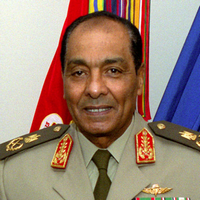CAIRO -- On Jan. 28, the Egyptian revolution's “Day of Anger,” revolutionary protesters drove security forces loyal to the ruling regime from Cairo's streets. As Egyptian army tanks rolled into Tahrir Square to fill the security vacuum, thousands cheered the arrival of what they saw as stability amid the chaos of the uprising. And when then-President Hosni Mubarak finally abdicated power on Feb. 11, most Egyptians were relieved to see the Supreme Council of the Armed Forces (SCAF), a body of military leaders normally headed by the president, take control.
“During the Egyptian revolution, you had a sense of the military being distinguished from the police and security forces,” said John Esposito, a professor of international affairs and Islamic studies at Georgetown University.
Since then, however, the military has “shown its true colors,” Esposito said. Despite publicly supporting popular demands in the transitional period, the SCAF-led government has largely maintained the same authoritarian rule and domestic policy agenda as the Mubarak regime.

